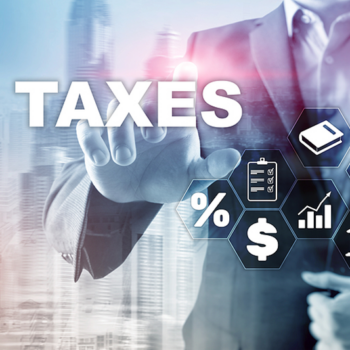
Navigating Expatriate Taxation in Singapore: Residency, Income Tax, and Compliance Guidelines
- Posted by admin
- On April 22, 2025
- 0 Comments
- Audit preparation, Financial audit guidelines, Internal controls review, Singapore audit process
Singapore’s tax regime for expatriates is frequently cited as one of the most efficient and business-friendly in the Asia-Pacific region. However, the apparent simplicity masks a nuanced and evolving system shaped by statutory residency, source-based taxation, and a set of compliance expectations that can present significant risks if misunderstood. For employers and individual expatriates alike, a technical understanding of tax residency status, income classification, applicable exemptions, and filing requirements is essential for managing risk and optimizing tax positions.
Understanding Tax Residency in Singapore
Tax residency under the Singapore Income Tax Act is primarily determined by the number of days an individual is physically present in the country, with additional considerations for employment and immigration status. The Inland Revenue Authority of Singapore (IRAS) categorizes individuals into two broad groups for income tax purposes:
- Tax Resident Individuals: Those who:
- Reside in Singapore (permanently or temporarily), or
- Stay or work in Singapore for 183 days or more in a calendar year, or
- Have been physically present for at least 183 days over a continuous period spanning two years, or
- Have worked in Singapore for three consecutive years, even if fewer than 183 days were spent in the first and third years.
- Non-Tax Resident Individuals: Those who stay in Singapore for less than 183 days in a year and do not meet the above thresholds.
The 183-day rule is central to determining eligibility for tax reliefs, resident tax rates, and other benefits. Misinterpreting residency status can result in overclaiming reliefs which carry penalties.
Source-Based Taxation and Scope of Income
Singapore adopts a territorial tax system. This means:
- Income sourced in Singapore is taxable, regardless of the taxpayer’s residency status.
- Foreign-sourced income is taxable only when remitted or deemed remitted into Singapore, unless explicitly exempted.
For individuals working in Singapore, they are exempt from tax on all foreign sourced income received into Singapore except where such income is received by the individual through a partnership in Singapore.
This source-based approach creates both opportunities and challenges. For expatriates employed by multinational corporations (MNCs), components like overseas allowances, stock options, and director’s fees must be carefully analysed to determine their taxability in Singapore.
Taxable Components for Expatriates May Include:
-
- Basic salary
- Housing and car allowances
- Bonuses
- Stock-based compensation (ESOPs)
- Cost-of-living allowances
- Director fees
Non-cash benefits, such as company-provided accommodation are also taxable.
Non-Taxable Benefits:
-
- Relocation reimbursements re: moving expenses
- Group Medical Insurance Policy (provided the benefits are given to all employees)
- Group Term life Insurance Policy (where employees are not entitled to the payout contractually)
- Retrenchment payment made to compensate for loss of office
To avoid inadvertent non-compliance, employers are advised to maintain detailed breakdowns of employment contracts and secondment letters.
Tax Rates: Residents vs. Non-Residents
Tax Residents:
-
- Taxed at progressive rates, ranging from 0% to 24%, effective as of Year of Assessment (YA) 2024.
- Eligible for personal reliefs, such as spouse, child, and earned income relief.
| Chargeable Income (SGD) | Tax Rate (%) |
| First 20,000 | 0 |
| Next 10,000 | 2 |
| Next 10,000 | 3.5 |
| Next 40,000 | 7 |
| Next 40,000 | 11.5 |
| First 500,000 | 22 |
| Next 500,000 | 23 |
| In excess of 1,000,000 | 24 |
Non-Residents:
-
- No personal reliefs allowed.
- Employment income is taxed at the higher of:
- A flat rate of 15%, or
- Resident progressive rates
- Director fees, consultancy income, and other non-employment income are taxed at a flat 24%.
This distinction often leads to significant differences in effective tax liability, especially for high-income earners or those with mixed-source income.
Short-Term Assignments and the 60-Day Rule
An important exemption exists for short-term employment:
- The 60-day rule exempts non-resident individuals from tax on their gains or profits from any employment exercised in Singapore if their total stay in Singapore is 60 days or less in a calendar year.
This exemption does not apply to:
- Company directors (i.e. Board Directors)
- Public entertainers
Short-term assignees must carefully monitor travel days and track employer source of compensation to determine eligibility.
Tax Filing Obligations and Employer Reporting
For Employees:
- Tax residents must file their personal income tax returns by April 15 (paper) or April 18 (e-filing) for the prior calendar year.
- Non-residents may also be subject to withholding tax obligations on director fees, which must be filed by the 15th of the second month following the date of payment to the non-resident.
For Employers:
- Required to file Form IR8A and Appendix 8A/8B (benefits in kind and stock options) by 1 March each year.
- Employers must also apply for a Tax clearance (Form IR21) for expatriates ceasing employment or leaving Singapore for over three months. Tax clearance must be sought at least one month before the departure date, and employers must withhold any final payment to the employee until IRAS provides clearance.
Failure to comply with tax clearance requirements can result in penalties for the employer and possible restrictions on the employee’s ability to leave Singapore.
Avoiding Double Taxation and Use of DTAs
Singapore has an extensive network of Avoidance of Double Taxation Agreements (DTAs) with over 90 countries, providing mechanisms such as:
- Tax credits for foreign tax paid,
- Exemptions for certain categories of income
- Tie-breaker rules for residency conflicts.
Expatriates working in multiple jurisdictions are advised to coordinate with tax advisors to ensure proper application of DTA relief and avoid dual reporting of income or excess withholding on income.
Common Pitfalls and Practical Recommendations
Key Compliance Risks:
- Misclassifying residency status
- Failing to withhold tax on director fees
- Missing tax clearance requirements
- Omitting taxable benefits in kind (i.e. non-cash benefits)
Best Practices:
- Maintain detailed travel logs for mobile employees
- Clearly distinguish Singapore-sourced vs. foreign-sourced income in employment agreements
- Perform tax equalization or protection calculations for globally mobile staff
- Regularly review and update employment contracts for compliance with IRAS guidelines
Conclusion
Navigating expatriate taxation in Singapore requires more than understanding personal tax rates, it involves evaluating cross-border employment structures, ensuring appropriate classification of income, and maintaining rigorous compliance practices. As regulatory scrutiny intensifies and international tax cooperation expands, both employers and expatriates must proactively manage their tax position with clarity and precision. Working with a qualified tax advisor can mitigate exposure and help ensure compliance with Singapore’s evolving tax landscape.











0 Comments